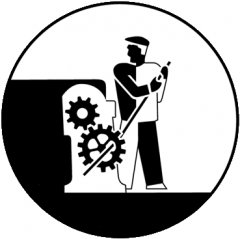
 Productivity is becoming more important every day. Fundamentally, it means doing much more with much less. And to be sure, there is scope for making, not only workers, but also the environment in which they work more efficient.
Productivity is becoming more important every day. Fundamentally, it means doing much more with much less. And to be sure, there is scope for making, not only workers, but also the environment in which they work more efficient.
You’ve probably noticed, for example, just how many organizations in both the public and private sectors waste electricity by leaving their computer monitors, printers, and copying machines on 24/7.
But you don’t have to dissipate resources in order for productivity to be lost. You can create exactly the same affect by making it harder for your employees to be efficient.
And you can do that quite easily; without ever realizing it, all the while believing that you are doing what you should be doing.
Fighter pilots have made this mistake. They all know how important it is to keep a visual on the horizon. At night, or while flying in weather, this isn’t possible; and so they have to rely on their instruments to do it for them.
Accident investigations, however, reveal that this is easier said than done. There have been occasions when aircrews became so preoccupied with everything else they were doing that they simply flew into the ground. The conversations taken from the flight recorders give no indication that they knew they were in trouble.
And you could be doing precisely the same thing in your organization. You could be concentrating so hard on doing what you think you should be doing that you overlook the signals that disaster is not far away.
How is it possible to lower productivity while doing what you believe will actually increase it?
It comes from destroying trust.
What could you do to make people think that you didn’t trust them?
One way would be to micro-manage them. Micro-managers believe that close supervision is necessary to keep those in their charge on course.
Present day jargon dresses up this behavior by referring to it as course corrections: A nudge here, and a nudge there.
The truth of the matter is that people don’t want to be smothered by their boss. They want to have the freedom to work without feeling that their every move is being watched.
That’s probably why productivity among factory workers improved by 10-15% in a recent study. Simply putting up a curtain between them and their managers prevented the latter from seeing the former.
When you’re more interested in not doing something wrong than you are in doing something right, you’re productivity is bound to fall.
The inevitable problem that comes from all this is that if people think you’re suspicious of them, then they will be suspicious of you.
Now instead of doing what they think they should, they’re waiting for you to tell them. It’s a bit like teaching someone to drive by telling them every single time when to move the steering wheel, whether it’s a little to the right or left.
After a while the learner-driver will wait for your course correction instead of watching the road or looking in the mirror. And that person could do everything you asked and still drive off the road.
But just like pilots, you not only have to look at your instruments, you also have to trust what they say.
During WWII, a B-24D Liberator named “Lady Be Good” overshot its airstrip in Libya following a mission that took them to Italy and back. By the time they bailed out, due to a lack of fuel, they were 400 miles beyond their home base. But instead of splashing into the Mediterranean, as they expected, they landed in the desert. They didn’t believe what their instruments said. Rather, they trusted in their instincts.
What are your instincts?
What are you doing that right now that feels like you’re increasing productivity? And what are you doing that actually destroys trust?
In organizations, your instruments are other people. When you learn to read them, then you’ll know that you’re on course.












3 comments
Pingback: Is Your Organization Engaged in Self-Sabotage? ...
Bert Melville
at 4:49 am
No wonder you have so many people coming to visit – your work is SENSATIONAL!!!
cheap flights to morocco casablanca
Mackenzie
at 12:32 pm
I’m really enjoying the design and layout of your blog. It’s a very easy
on the eyes which makes it much more pleasant for me to come here and visit more often.
Did you hire out a designer to create your theme?
Excellent work!